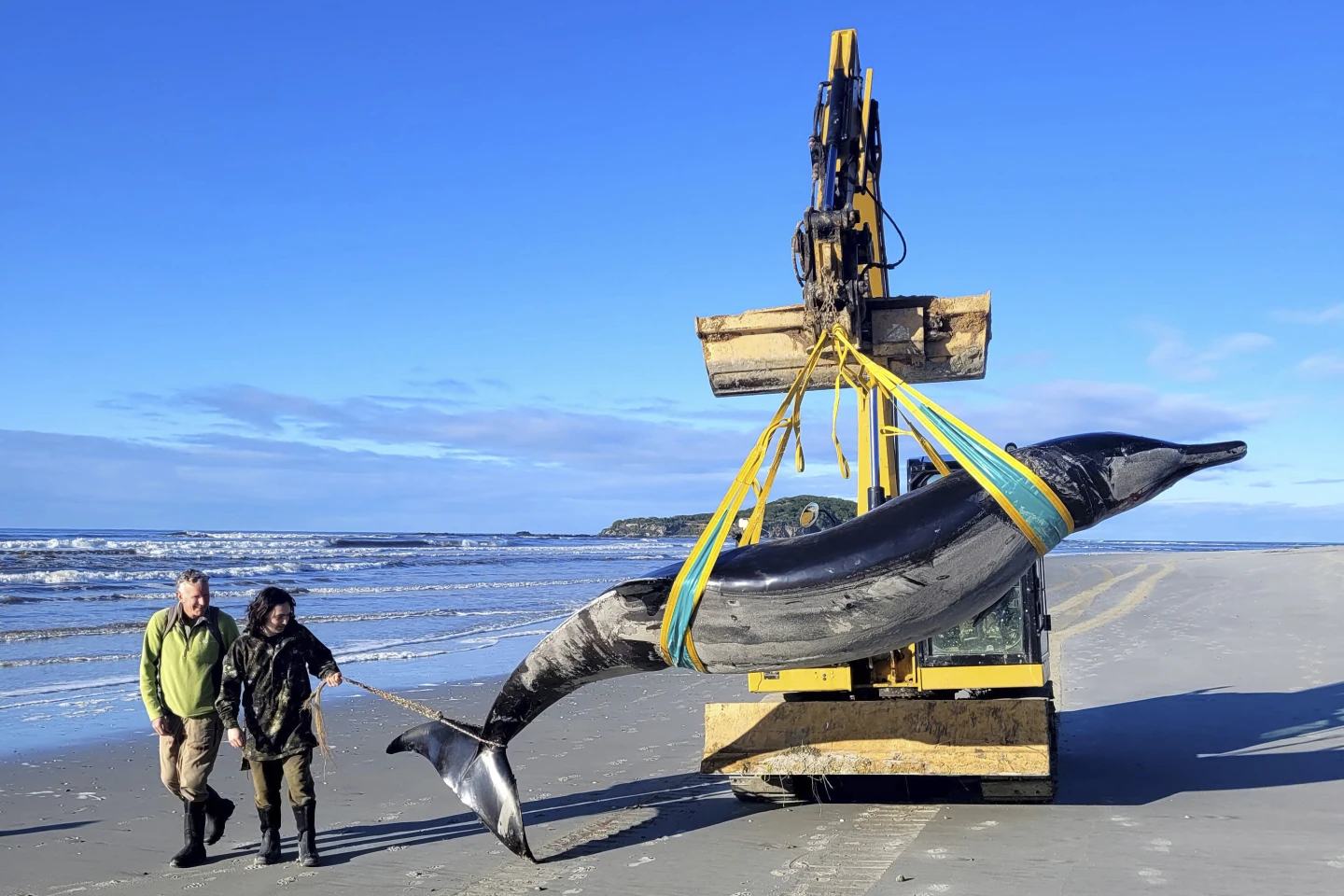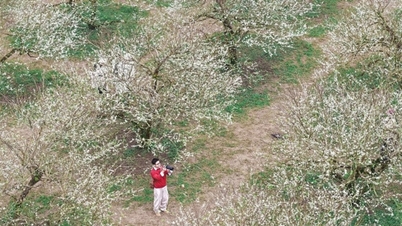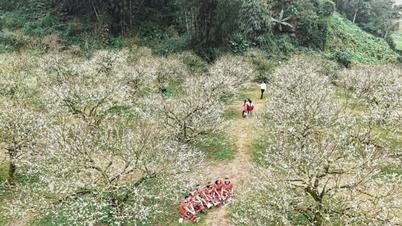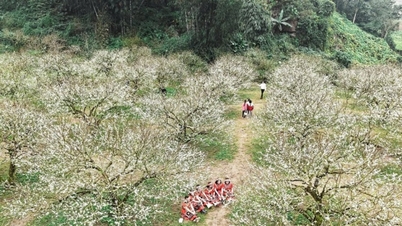A creature that washed ashore on the Otago coast this month is believed to be a spade-toothed whale, the New Zealand conservation agency said on July 15. The 5-meter-long creature was identified from its features, color, and the shape of its skull, beak, and teeth.

A rare spade-toothed whale is moved after washing ashore near Otago, New Zealand on July 5. Photo: New Zealand Department of Conservation
“We know very little, practically nothing” about these creatures, said Hannah Hendriks, a marine technical adviser with the New Zealand Department of Conservation. “This will lead to some amazing and world-first scientific information.”
If the whale is confirmed to be the rare spade-toothed whale, it would be the first specimen to allow scientists to dissect it, helping them map its relationship to the few other species found, learn what it ate and possibly find clues about where it lived.
The stranded whale was quickly moved to cold storage and researchers will work with indigenous Māori people to plan an examination.
Little is known about the whale's habitat. Hendriks said the creatures dive deep to feed and rarely surface, so their range cannot extend much further than the South Pacific , home to some of the world's deepest ocean trenches.
The conservation body said genetic testing to confirm the whale's identity could take months. Kirsten Young, a senior lecturer at the University of Exeter who studies spade-toothed whales, said researchers and locals had been working hard for years to identify the "incredibly mysterious" mammal.
This new discovery "made me wonder, how many species are out there in the deep ocean and how do they live?", Young said.
The first spade-toothed whale bone was found in 1872 on New Zealand's Pitt Island. A second was found on an offshore island in the 1950s, and the third specimen was found on Chile's Robinson Crusoe Island in 1986. DNA sequencing in 2002 proved that all three specimens belonged to the same species, distinct from other beaked whales.
Researchers studying the species could not confirm whether the species was extinct. Then, in 2010, two intact spade-toothed whales, both dead, washed up on a New Zealand beach. They were initially mistaken for one of New Zealand’s 13 other common species of minke whale. Tissue samples taken before they were buried later revealed they were the mystery species.
Ngoc Anh (according to AP)
Source: https://www.congluan.vn/ca-voi-chua-tung-duoc-nhin-thay-dat-vao-bai-bien-new-zealand-post303647.html




![[Photo] General Secretary To Lam receives the Director of the Academy of Public Administration and National Economy under the President of the Russian Federation](/_next/image?url=https%3A%2F%2Fvphoto.vietnam.vn%2Fthumb%2F1200x675%2Fvietnam%2Fresource%2FIMAGE%2F2025%2F12%2F08%2F1765200203892_a1-bnd-0933-4198-jpg.webp&w=3840&q=75)













































































































Comment (0)